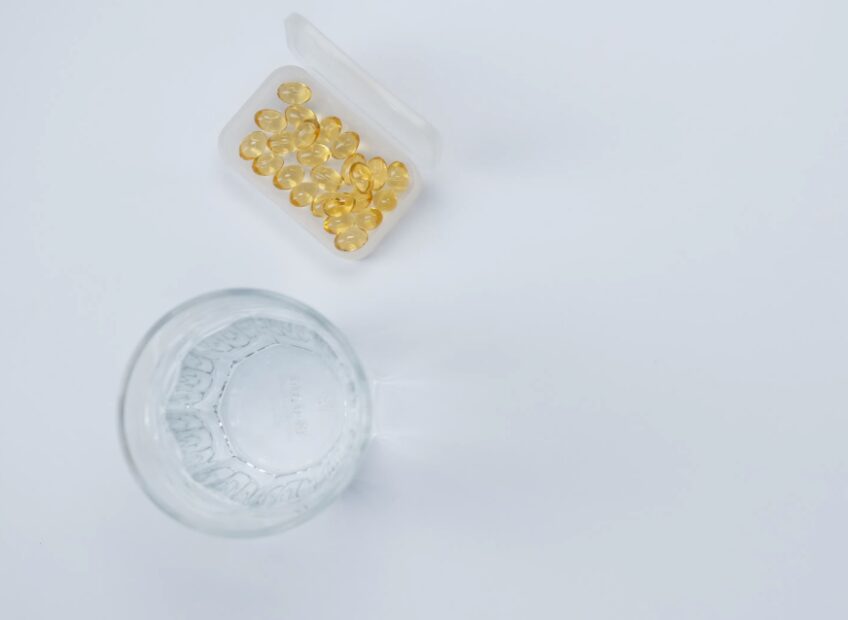Testosterone is a steroid hormone primarily produced in the testicles of males. Also, to a much lesser extent, it is produced in the ovaries of females and the adrenal glands of both sexes. It is a hormone belonging to the androgen group of hormones and it plays a crucial role in the development and maintenance of male sexual characteristics, reproductive functions, and many other important functions in the body like growth, muscle mass, bone density, strength, etc.
The production of testosterone begins during fetal development and continues to increase during puberty. During puberty, the hormone causes the growth of facial and body hair, the deepening of the voice, and muscle growth. Testosterone is also responsible for the development of the male sex organs (penis, testicles, prostate gland). Of course, it also regulates the production of sperm.
When Testosterone Levels Drop
As men age, testosterone levels in their bodies naturally decline. This is normal and it can lead to a variety of symptoms and health problems that are difficult for men to cope with. The symptoms include decreased sex drive, erectile dysfunction, and decreased muscle mass, strength, and bone density. Low testosterone levels can also contribute to obesity, metabolic syndrome, and type 2 diabetes.
Apart from its role in sexual development and function, testosterone has a variety of other important functions in the body. It plays a vital role in the development and maintenance of muscle mass and bone density and regulates the distribution of fat in the body. Because of all this, lower testosterone levels are associated with increased fat accumulation which is common in older men.
Testosterone has also been shown to have a significant impact on mood and cognitive function. With higher testosterone levels being linked to improved mood, higher self-esteem, and reduced risk of depression, lower levels do the opposite and cause mood swings, lower confidence, and anxiety that leads to depression. Testosterone also improves spatial memory and verbal memory, as well as cognitive function in general, so lower levels have a great impact on overall cognitive function.
While age is the main culprit of the lower presence of testosterone, other factors that can affect testosterone levels also exist. They include obesity, stress, chronic illness, and certain medications. Lifestyle factors like diet and exercise, or lack thereof, can also have a negative impact on testosterone levels. Heavy smoking and drinking are also not favorable.
If you’re interested in exploring the testosterone boosters’ side effects, our post might be of interest to you
Testosterone and Beard Growth

With so many critical roles in the male body, it can be easy to forget that testosterone also has a role to play in beard growth. Although there are several factors that influence beard growth like genetics, age, and overall health, increased testosterone levels can potentially help promote beard growth. Men who cannot grow full bears are often desperate for it and want nothing more than to be able to do it. It can be done in a number of ways but none of them is a guarantee. Some tips on how to naturally increase testosterone levels for beard growth include:
- Regular Exercise: Exercising and being active regularly can help increase testosterone levels, especially in high-intensity interval training and strength training exercises like weightlifting.
- Enough Sleep: Adequate sleep is essential for overall health, including testosterone production, and therefore beard growth. Aim for at least 7 hours of quality sleep per night.
- Reduced Stress: Chronic stress decreases testosterone levels so find ways to manage stress. Practicing meditation or yoga helps greatly.
- A Healthy Diet: Eating a healthy and balanced diet rich in protein, healthy fats, and micronutrients (zinc, magnesium, vitamin D) can help support testosterone production. Eggs, fatty fish, nuts, and leafy greens can be beneficial for overall health and beard growth.
- Supplements: Certain nutrients and vitamin supplements like D-aspartic acid, zinc, and ashwagandha are not present in high enough doses (or at all) in the food we eat. Therefore, supplements are the only way to get enough of them. These may help increase testosterone levels too and help you with a full head of beard. Testosterone supplementation has all sorts of beneficial ingredients that keep the levels high.
- Avoid Smoking and Alcohol: Both smoking and excessive alcohol consumption can decrease testosterone levels. It is best to avoid or limit these habits if you suspect your testosterone may be fading.
While increasing testosterone levels can potentially help promote beard growth, it is important to keep in mind that genetics and age play a significant role in beard growth as well. If you have concerns about your beard growth, consult with a dermatologist or a healthcare provider for personalized advice. Castor oil is said to help with beard growth too.
What Influences Beard Growth?

As mentioned, beard growth is influenced by a combination of genetic, hormonal, and environmental factors. A lot is out of our control, but testosterone levels can be kept balanced and even increased. Other factors are not so easily controllable. Genetics play a major role in determining beard growth and the “genetic lottery” is to be blamed for one’s inability to grow a strong beard. The genes you inherit from your parents can impact the thickness, color, and pattern of your beard.
Hormones play a role too, but not a huge one like in some other areas. Testosterone is the primary hormone responsible for the development of male secondary sexual characteristics, including beard growth. Other hormones, such as dihydrotestosterone (DHT), also play a role in beard growth. Increasing one or both can lead to a stronger, thicker, and fuller beard. Testosterone supplementation is your best bet here.
Beard growth typically increases during puberty and peaks in the 20s and 30s, when the concentration of testosterone is the highest in a man’s life. As men age, testosterone levels naturally decline, which can lead to thinner, sparser facial hair. This of course is not universal as a lot of men keep their beards well into their golden age.
Poor health or certain medical conditions can impact beard growth. For example, conditions that affect hormone production or nutrient absorption like hypothyroidism or malnutrition lead to thin or patchy facial hair. Taking care of your health first and becoming overall healthier can cause your beard to grow more.
Of course, a healthy diet that provides adequate protein, healthy fats, and micronutrients like vitamins A, C, and E, zinc, and biotin is important for the entire body and therefore beard growth. Poor nutrition can lead to thin or brittle all hair, not just facial hair.
Chronic stress, anxiety, and depression can and usually do negatively impact hormone production, which in turn affects beard growth. Finding ways to manage them through exercise and/or relaxation helps support beard growth.
Environmental factors such as air pollution or harsh chemicals can impact testosterone levels and beard growth. Protecting your skin and facial hair from these stressors can help promote healthy beard growth and limit the dropping of your testosterone levels.
With an in-depth knowledge of supplements and a commitment to wellness, Sharon’s words inspire readers to embark on a transformative journey towards optimal health.
Also Read:
- Does Cold Showers Increase Testosterone? - Yes, But…
- Does Creatine Increase Testosterone? - Grow in More…
- Best 10 Supplements to Reduce Cortisol - Manage Your…
- Testofuel vs Prime Male - Increase Your Testosteron Levels
- How to Increase Dopamine to Manage Your ADHD:…
- The Benefits of Taking up an Online Master of…















